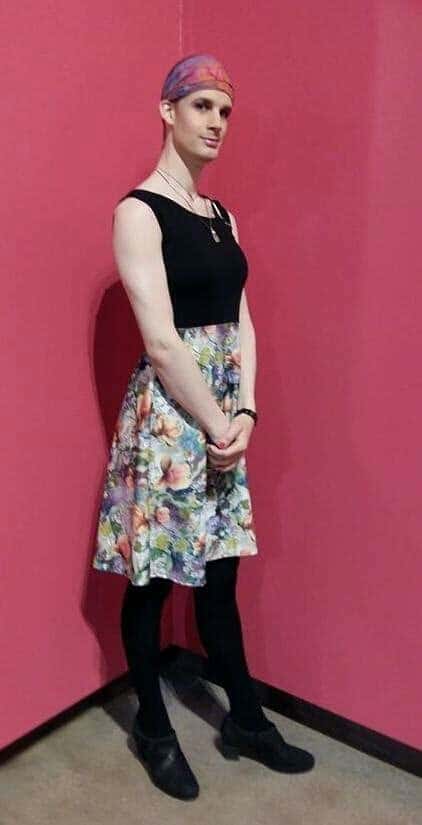
Content Warning: Self Harm
Twenty eight years ago some doctor looked between my legs and declared me male. It all went downhill from there. Objectively I had a pretty good life. Food, shelter, and parents who loved me. Which was a good safety net, but did not circumvent my need for mental health services. Since childhood in my subconscious I always knew I was a woman, the problem being that everyone seemed to think I was a boy, and that, unfortunately, informed my conscious mind. (It’s a lot more complicated than that, but going in depth here won’t add much to overall point I’m trying to make)
Any time a remotely feminine thought rose to the surface, I’d tell myself to “man up” and repress that thought. I was never a boy, but I wore the facade of one, as I was giving in to society’s expectations of me. This rapidly spiraled out of control, and by age seventeen I wasn’t just repressing feminine thoughts, I was repressing all emotions. I was little more than a living husk, void of all emotion. I turned to self harm, and other self destructive behaviours as a means of coping with the void, in the hope of feeling something. Anything. I couldn’t turn to anyone for help because it wasn’t “manly” to seek the help of a therapist, and I feared ostracism from my peers should I show any gender nonconformity outside the role I was assigned at birth. I fell into myself, which only made the problem of the void worse. It wasn’t until I began exploring my gender identity, allowing myself to embrace my femininity that I was able to get help from a counselor at the urging of a dear friend. That counseling literally saved my life and, had I not broken the bonds of toxic masculinity, I would not be here today to write this piece. Masculinity itself is not toxic, but it becomes toxic when it causes harm, or emotional/mental distress to oneself, or others.
It’s nearly impossible to miss if you consume almost any media, or simply exist in society. Men, or people perceived by society as masculine are, typically, urged to repress their emotions. How often have you heard the phrase “boys don’t cry?” As a transgender woman I’ve seen both sides of this. When society perceived me as a man, I felt mental health services were inaccessible to me. As a woman, there is less societal stigma for seeking mental health help. (SEEKING that help, at least. Actually accessing mental health services from doctors and such is harder for women due to some “female hysteria” malarkey) Do not let societal stigma, or other’s underestimating your needs prevent you from accessing the services you need. Take it from me, getting the help I needed was a pivotal time in my life.
There is a stigma in our society relating access of mental health services. That is why programs like the One Project are so important. They help normalize talking about our mental health needs.
—Samantha Nystrom
Together We’re Building
A better picture of mental health
Read another story or share yours
All Mental Health Stories | Depression Stories | Anxiety Stories

